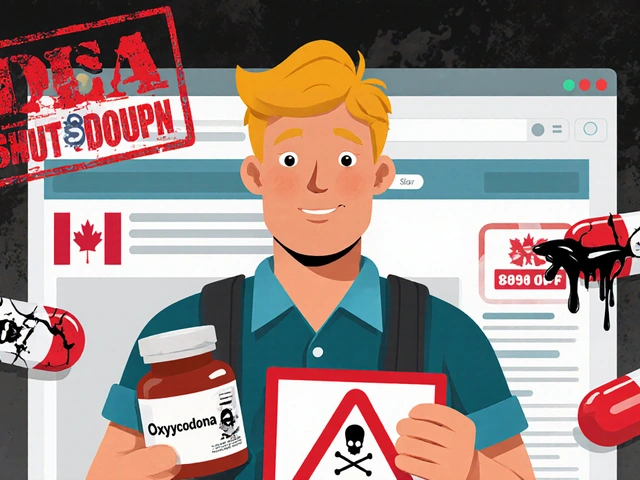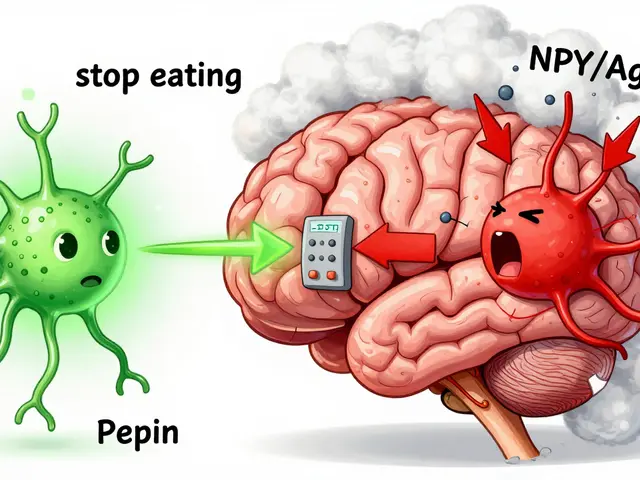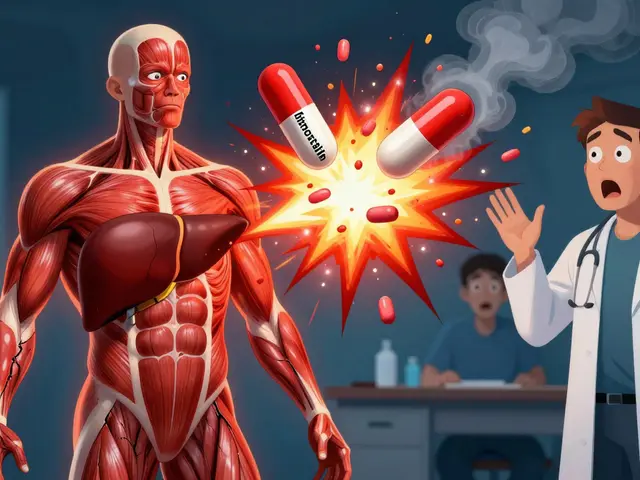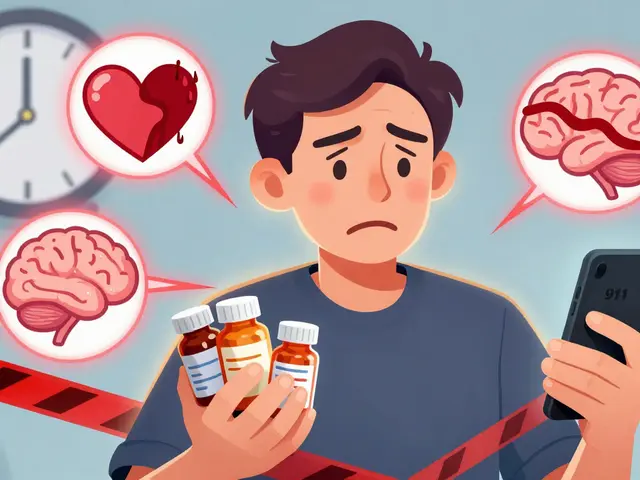Introduction to Butylscopolamine
Butylscopolamine, also known as hyoscine butylbromide or scopolamine butylbromide, is a medication widely used to treat various gastrointestinal issues, such as abdominal cramps, stomach pain, and irritable bowel syndrome (IBS). It works by relaxing the muscles in the gastrointestinal tract, thereby reducing spasms and pain. While butylscopolamine can be quite effective, there are potential side effects that users should be aware of. In this article, we will discuss the side effects of butylscopolamine and ways to manage them.
Common Side Effects of Butylscopolamine
As with any medication, butylscopolamine may cause some side effects. The most common side effects include dry mouth, blurred vision, dizziness, and drowsiness. Other possible side effects are constipation, difficulty urinating, and increased heart rate. These side effects are usually mild and tend to go away on their own as the body adjusts to the medication. However, if any of these side effects persist or worsen, it is important to consult a healthcare professional.
Rare but Serious Side Effects
Though uncommon, there are some serious side effects associated with butylscopolamine use. These can include severe allergic reactions, difficulty breathing, severe dizziness, and swelling of the face, lips, tongue, or throat. If you experience any of these symptoms after taking butylscopolamine, seek immediate medical attention as they may be signs of a life-threatening reaction.
Interactions with Other Medications
Butylscopolamine may interact with other medications, potentially increasing the risk of side effects or reducing the effectiveness of either drug. Some common medications that may interact with butylscopolamine include antihistamines, antidepressants, antipsychotics, and medications for Parkinson's disease. It is crucial to inform your healthcare provider of all the medications you are currently taking, including prescription and over-the-counter drugs, to avoid any potential interactions.
Precautions and Contraindications
There are certain conditions and circumstances in which butylscopolamine should not be used, or used with caution. Individuals with glaucoma, myasthenia gravis, urinary retention, or severe liver or kidney disease should avoid using butylscopolamine unless directed by a healthcare professional. Pregnant and breastfeeding women should also consult a healthcare provider before using butylscopolamine, as its safety during pregnancy and lactation has not been fully established.
Managing Common Side Effects
There are several ways to manage the common side effects of butylscopolamine. For example, chewing sugar-free gum or sucking on ice chips can help alleviate a dry mouth. Drinking plenty of water and increasing dietary fiber can help prevent constipation. To minimize dizziness and drowsiness, it is advised to get up slowly when rising from a sitting or lying position and avoid operating heavy machinery or driving until you know how the medication affects you.
Overdose and What to Do
Although rare, it is possible to overdose on butylscopolamine. Symptoms of an overdose may include severe dizziness, drowsiness, difficulty breathing, seizures, and even coma. If you suspect an overdose, seek immediate medical attention. It is essential to always take butylscopolamine exactly as prescribed and never exceed the recommended dosage.
Storage and Disposal
Proper storage and disposal of butylscopolamine are essential to ensure its effectiveness and safety. Store the medication at room temperature, away from heat, moisture, and direct sunlight. Keep it out of reach of children and pets. When it comes to disposal, do not flush the medication down the toilet or pour it down the drain. Instead, follow the disposal instructions on the prescription label or consult your pharmacist for guidance.
When to Seek Medical Advice
It is crucial to seek medical advice if you experience any severe or persistent side effects while taking butylscopolamine. Additionally, if your symptoms do not improve or worsen after taking the medication, it is essential to consult a healthcare professional. They may need to adjust your dosage or suggest an alternative treatment.
Conclusion
Butylscopolamine is an effective treatment for many gastrointestinal issues; however, it is essential to be aware of its potential side effects. By understanding these side effects and knowing how to manage them, you can safely and effectively use butylscopolamine to find relief from your symptoms. Always consult a healthcare professional if you have any concerns or questions about using butylscopolamine.











Mirian Ramirez
Man, I’ve been on this stuff for my IBS and honestly? Dry mouth is the worst. I keep chugging water like it’s my job, and still feel like I’ve been chewing sand for a week. Chewing gum helps a little, but not enough. Also, the dizziness? Don’t even get me started-I almost face-planted into my coffee this morning. Still, it’s the only thing that stops my stomach from doing the cha-cha, so I’ll take it. Just… maybe warn people about how sneaky the drowsiness is. I thought I was fine to drive, and then I was 20 minutes late because I nodded off at a red light. Oops.
Kika Armata
How quaint. You’re all treating this like some benign over-the-counter remedy, when in reality, butylscopolamine is a potent anticholinergic with a narrow therapeutic index. The fact that people are casually discussing dry mouth as if it’s a minor inconvenience reveals a terrifying level of medical illiteracy. This isn’t ibuprofen. It’s a drug that can induce delirium in the elderly, exacerbate glaucoma, and interfere with thermoregulation. And yet, here we are, treating it like a herbal tea. The real side effect isn’t the dry mouth-it’s the collective ignorance of the public.
Herbert Lui
You know, I’ve spent a lot of time thinking about how we treat our bodies like machines you just slap a patch on and forget about. Butylscopolamine? It’s not just a drug-it’s a signal. A whisper from your nervous system saying, ‘Hey, something’s off down there.’ We’re so quick to mute the symptoms with chemicals instead of asking why the cramps are happening in the first place. I get it-life’s busy, pain’s urgent. But maybe, just maybe, the real side effect isn’t the blurred vision or the dry throat… it’s that we’ve stopped listening to our bodies entirely. I’ve seen people on this stuff for years, and never once did they ask, ‘What’s causing this?’ That’s the tragedy.
Nick Zararis
Don’t forget-constipation, blurred vision, dizziness, dry mouth, urinary retention, tachycardia-these are all CLASSIC anticholinergic effects! And yes, they’re common! And yes, they’re manageable! But you MUST monitor them! Especially if you’re over 65, or on other meds, or have a history of anything cardiac or neurological! Don’t just ‘hope it goes away’-track it! Write it down! Talk to your pharmacist! And please, for the love of all that’s holy, don’t mix it with Benadryl or SSRIs without consulting someone who actually knows what they’re talking about!
Sara Mörtsell
I’ve been on this for 3 years and nobody ever told me about the brain fog until I started googling it after I forgot my kid’s birthday. That’s not a side effect, that’s a crime. They sell this like candy and then act surprised when people can’t function. I’m not complaining-I’m exposing the system. You’re supposed to be warned. You’re supposed to be told this could turn you into a zombie who forgets how to spell ‘water.’ But no. Just pop the pill. And then? Blame the patient. Pathetic.
Rhonda Gentz
I think the most overlooked thing here is how this drug changes your relationship with discomfort. It doesn’t heal the cramps-it just makes you numb to them. And after a while, you stop noticing the patterns. When you eat dairy, when you’re stressed, when you sleep late. You stop learning from your body because the medicine is silencing the signal. I stopped taking it last year. Started yoga, cut out gluten, and the cramps are still there-but now I understand them. And that’s worth more than a pill that makes you forget your own name.